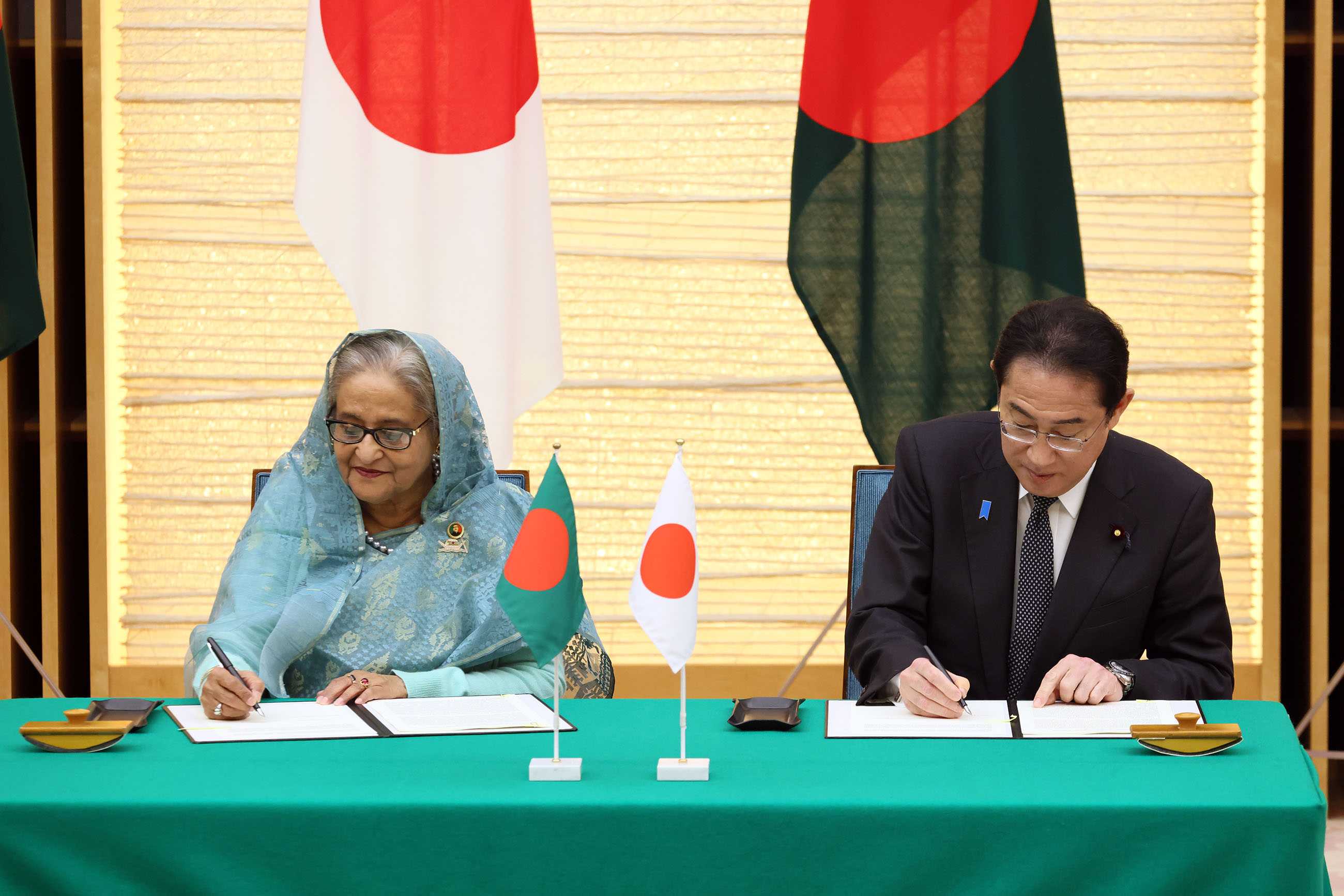The Significance of Bangladesh's Accession to the Hong Kong Convention for Safe and Environmentally Sound Ship Recycling: Support from Japan

During her recent sojourn to Japan, Bangladesh's esteemed Prime Minister Sheikh Hasina espoused her strong intent to devote herself assiduously to the expeditious accession to the Hong Kong Convention (HKC) for the Safe and Environmentally Sound Recycling of Ships, 2009, an effort which was met with unanimous support from the honourable Japanese Prime Minister Kishida. This auspicious development portends a significant leap towards the establishment of an all-encompassing global regime for the safe and sustainable recycling of ships, a critical objective that has long been in the offing.
The HKC is a seminal international agreement crafted to enhance the safety and sustainability of ship recycling, ensuring that the process of recycling ships is carried out in an ecologically sound and secure fashion, thereby averting any potential harm to the well-being of humans and the environment. However, for the HKC to come into force, it necessitates the ratification by at least 15 states, which account for 40% of the world's merchant shipping in terms of gross tonnage and collectively partake in annual ship recycling volume that is no less than 3% of their combined tonnage.
By way of Bangladesh's ascension to the HKC, in conjunction with India, the combined maximum annual recycling capacity of these nations surpasses the mandated 3% threshold. Bangladesh, specifically, is one of the foremost nations in the world that partakes in ship recycling, and its accession to the HKC is an imperative precursor to instigate the capacity clause and bring the world closer to a sustainable and secure ship recycling industry.
In response to the expectation expressed by the dignified Japanese Prime Minister Kishida that Bangladesh would accede to the HKC, Prime Minister Hasina intimated her profound determination to make concerted efforts to this end in 2023. In addition, Prime Minister Kishida also expressed his willingness to weigh the possibility of offering support to Bangladesh in the domain of ship recycling, taking cognizance of Bangladesh's imperative need for the development of a Treatment, Storage, and Disposal Facility (TSDF). This backing is of paramount significance to Bangladesh's compliance with the HKC, given that the convention stipulates that states must ensure that the ship recycling facilities under their jurisdiction conform to the HKC's requirements for safe and ecologically sound recycling practices. Thus, the establishment of a TSDF in Bangladesh is an instrumental step towards the country's successful accession to the HKC, and Japan's support in this regard is a noteworthy impetus towards realizing this goal.
Upon the HKC's attainment of effectivity, it will pave the way for the establishment of a comprehensive global regime for ship recycling, proffering lucid guidelines for the design, construction, operation, and end-of-life management of ships. This would serve as a safeguard to ensure that the process of ship recycling is executed in an environmentally sustainable and secure manner, thus averting any untoward incidents, pollution, and damage to the marine environment.
In sum, Bangladesh's accession to the HKC will mark an imperative milestone towards the realization of this international agreement, bringing the world ever closer to a sustainable and secure ship recycling industry. The laudable efforts by Prime Ministers Sheikh Hasina and Kishida to augment cooperation in this domain are commendable, and their dedication to supporting Bangladesh's pursuits in the arena of ship recycling portends a promising future.
